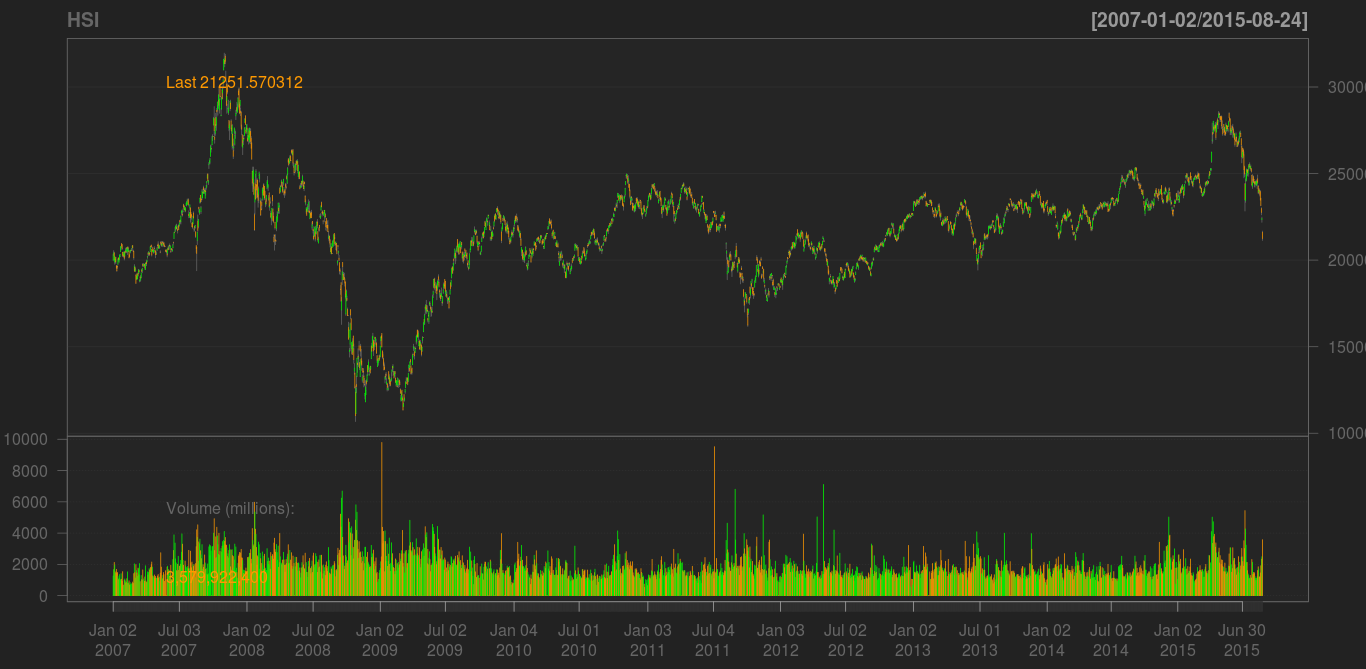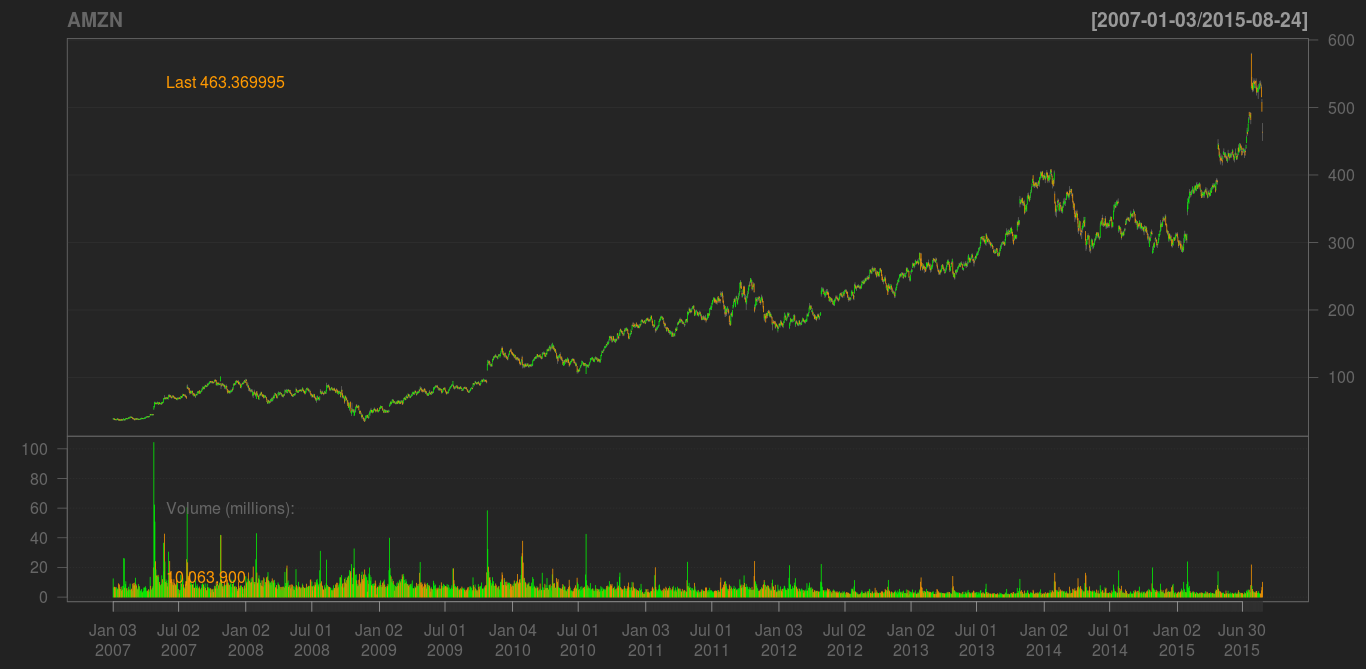Shorting overvalued stocks
Today's daily dispatch from Casey Research shared few perspectives on the market crash that started with the Shanghai sellout. For the uninitiated on the topic, China’s stock market sank 8.5% lower. It was the largest single-day loss for Chinese stocks since 2007!
Let's look at the trend of the HANG SENG INDEX for some perspective.

BTW, the above plot can be generated using R with the following code:
require("quantmod")
getSymbols("^HSI")
chartSeries(HSI)
My favorite lines (from personal experience) are below (and yeah! I really went short on AMZN a long time back! and got burned!)
Chris Wood agrees that Amazon and Netflix are expensive…
But that doesn’t mean you should bet against them.
Chris says you shouldn’t short a stock just because it’s expensive:
Amazon and Netflix are overvalued based on traditional metrics…
Amazon’s sales have been growing like wild, but it doesn’t make any money. Amazon has lost $200 million over the past four quarters. It doesn’t have any earnings so Amazon doesn’t have a price-earnings (P/E) ratio.
Unlike Amazon, Netflix actually makes a profit. But it’s still wildly expensive. Netflix has a P/E ratio over 200.
However, I learned long ago to never short a stock based on valuation alone. An expensive stock can keep getting more expensive for months or even years.
The bottom line: don’t short a stock just because it’s expensive. Only short a stock if you know of something that could trigger a sell-off.
And yeah! Here is Amazon's stock trend just for some perspective! It went one way! UP!
